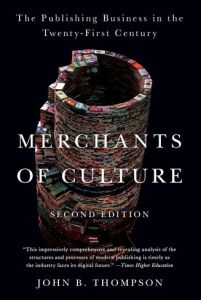Join getAbstract to access the summary!

Join getAbstract to access the summary!
John B. Thompson
Merchants of Culture
The Publishing Business in the Twenty-First Century
Plume, 2012
What's inside?
What drives the publishing industry, and what forces are changing it?
Recommendation
Book publishers are “merchants of culture” and exert an enormous impact on society. Yet few people know how publishing makes a profit and how social, economic and cultural forces prompt the industry to serve an ever-changing audience. John B. Thompson, a professor of sociology, has compiled a thorough report on the British and US publishing industries. His analysis includes expert interviews and insider perspectives. Since his account is exceedingly detailed, getAbstract recommends Thompson’s insights to devoted readers who want to discover what drives the publishing business now and what will propel it in the future.
Summary
About the Author
John B. Thompson is a professor of sociology at the University of Cambridge and a Fellow of Jesus College, Cambridge. His previous publications include Books in the Digital Age.
















Comment on this summary